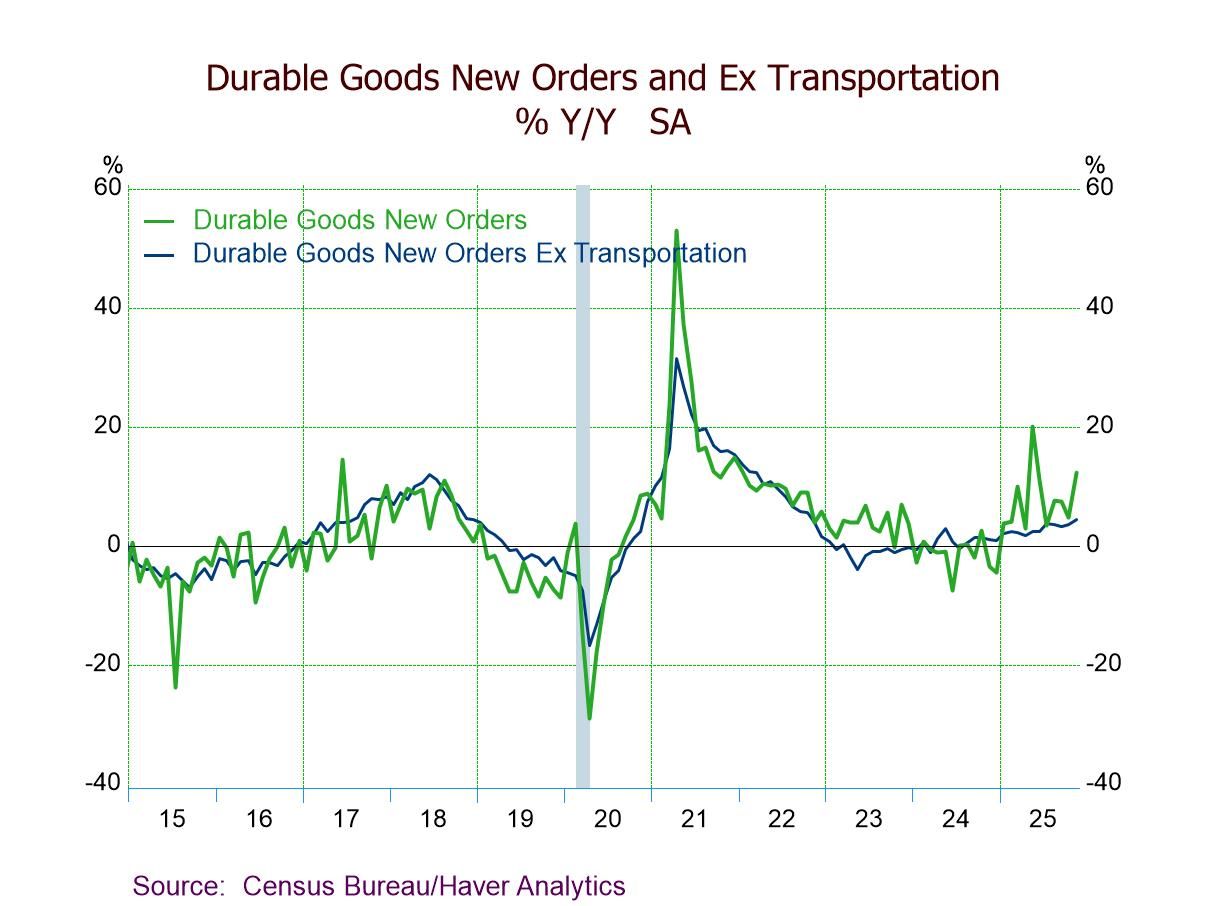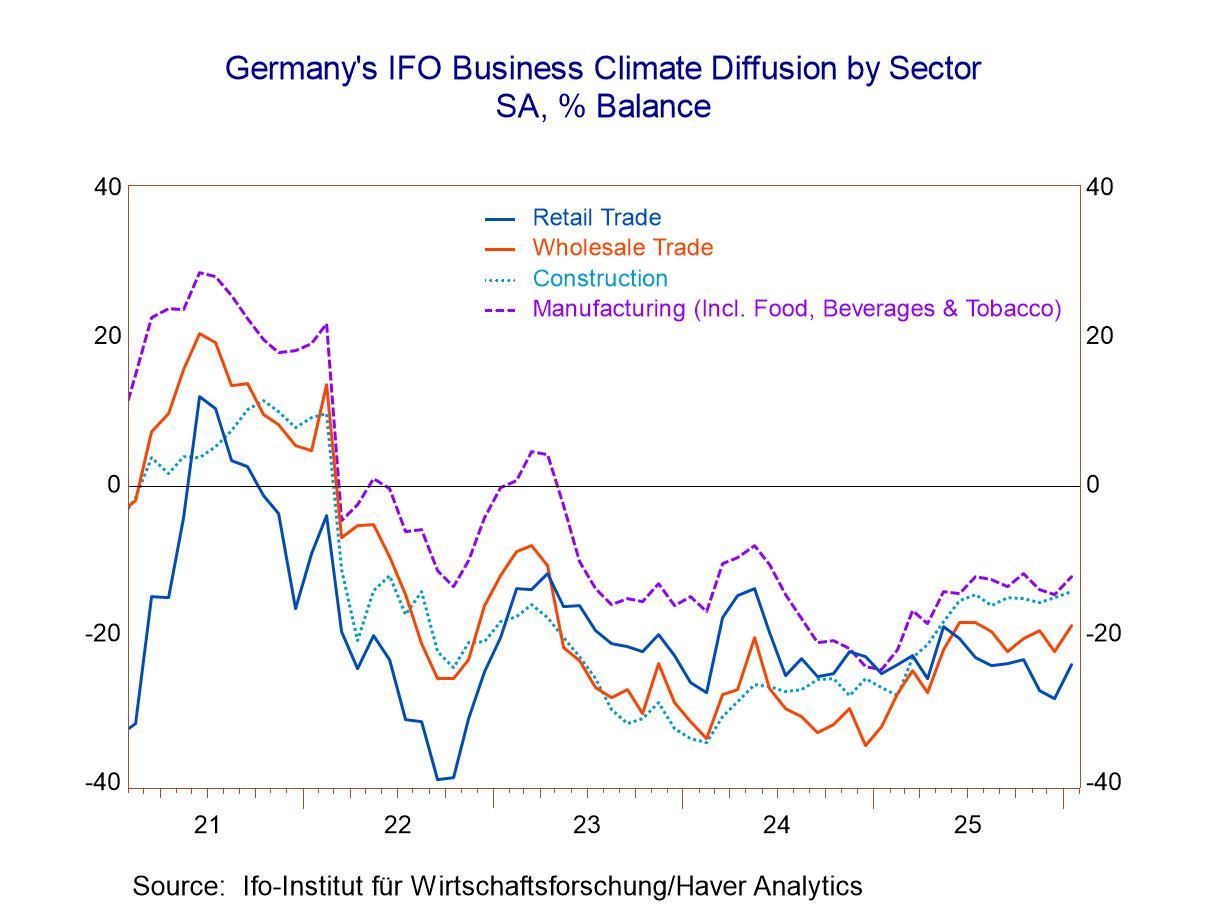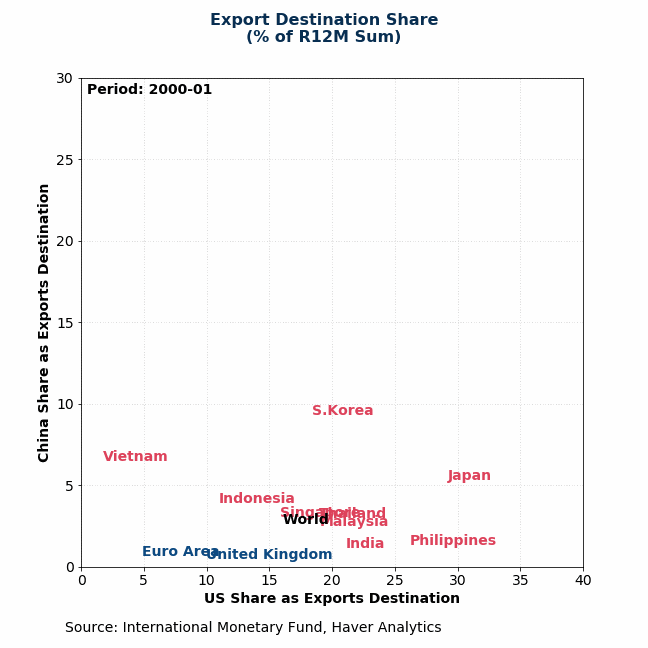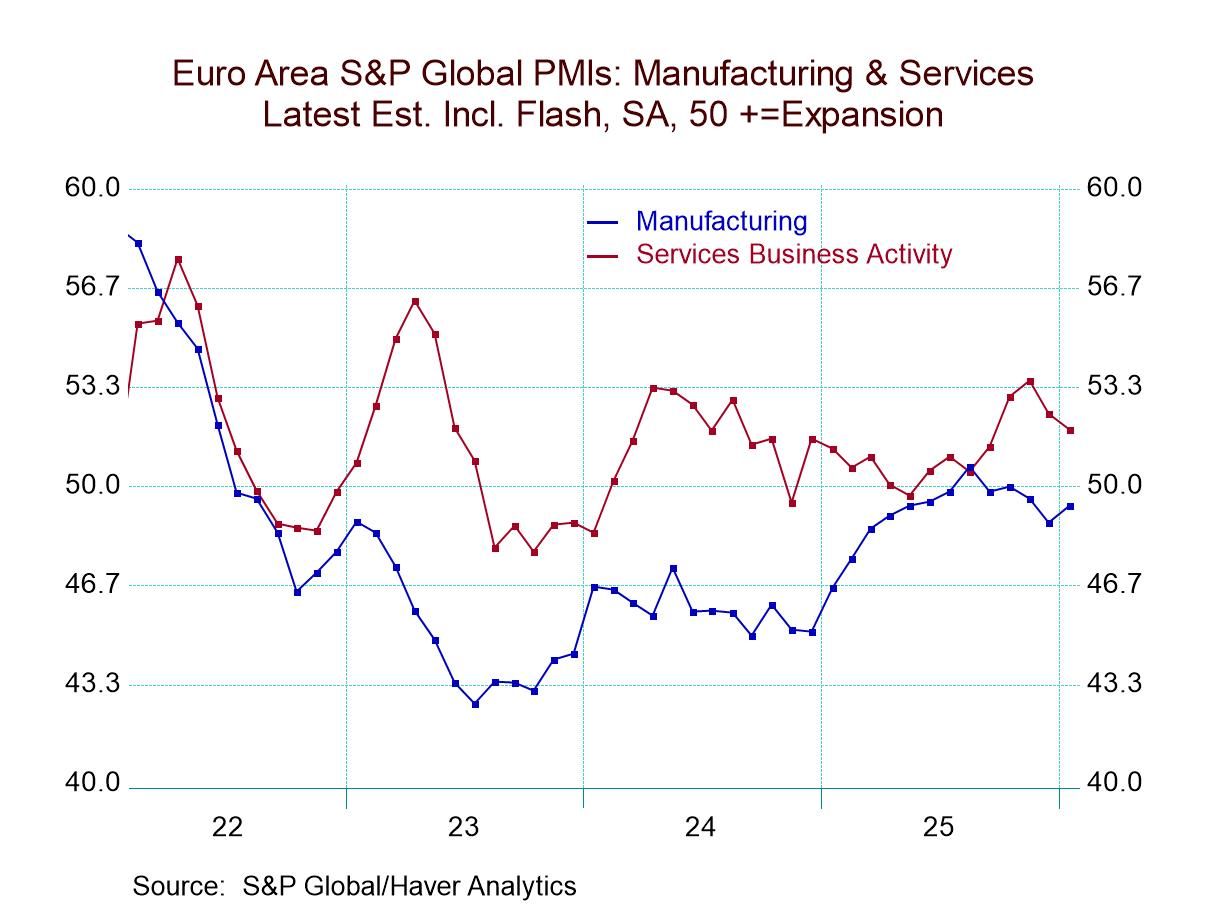 Global| Jun 08 2011
Global| Jun 08 2011German Trade Takes a Hit But Also Scores Some Progress
Summary
Smaller German trade surplus - German trade flows withered in nominal terms as the trade surplus fell to 11.98bln in April form 15.12bln in March. Still what happens with nominal flows can be deceiving. Understanding the under [...]
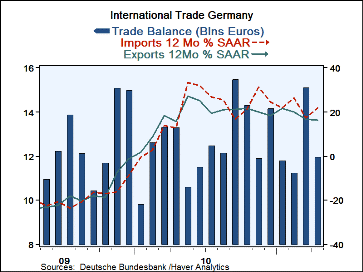 Smaller German trade surplus - German trade flows withered in nominal terms as the trade surplus fell to €11.98bln
in April form €15.12bln in March. Still what happens with nominal flows can be deceiving.
Smaller German trade surplus - German trade flows withered in nominal terms as the trade surplus fell to €11.98bln
in April form €15.12bln in March. Still what happens with nominal flows can be deceiving.
Understanding the under currents of trade - We offer in the table the ratio of exports to imports as a diagnostic sort of like an oil dip-stick for the trade report. Since the nominal trade gap is the most visible statistic it sometimes acts in ways to obscure the underlying trends. For example if the trade balance is in surplus and both exports and imports rise by 10% the surplus will get larger since 10% of a larger export number will be more than 10% of the lower import number. While the nominal deficit does get larger in that case exports and imports are simply pacing with each other. To poke though that bit of mist we offer the nominal export: import ratio. Exports in April did fall to 116% of imports from 120% in March implying as the data show that imports were relatively stronger falling by just 2.5% in April compared to a drop of 5.5% for exports. The 116% figure is about lowest for the benchmark figures in the table that go back about three years. The nominal ratio says that imports are indeed gaining on exports not just in euro terms but even as a ratio.
Nominal Vs real flows - But that is a nominal phenomenon. It does explain what is going on with the trade deficit. The nominal deficit is important in its own right; it defines whether the economy is financed by a trade surplus or whether the economy or has get financing for the deficit. The nominal German surplus is indeed shrinking this month providing less stimulus and financing but why?
German terms of trade deteriorate - The second ratio in the table, that of real exports to real imports, reveals the real mechanism. Germany is suffering a loss in its terms of trade. Commodities and oil prices are rising faster than are export prices causing Germany to have to trade at increasingly adverse price ratios. This is what happens naturally when oil prices rise quickly. Countries have to pay more in real goods for the same amount of oil. Oil's purchasing power rises relative to other goods. This process underscores the sense in which oil prices are not just and inflation factor but how they leach growth from the importing county when they rise sharply. And this effect is playing out around the world, not just in Germany. But, as the euro rises in value, it helps to block some of this impact since oil is priced in dollars.
Trouble-shooting the trade data - So how do we know this is terms of trade effect? It is because, in the real ratios, exports are rising faster than imports. The rise is very steady and the ratio is almost back to the ratio that obtained two years ago (128.1% now Vs 130.7% then). Since exports are rising relative to imports in real terms and since imports are rising relative to exports in nominal terms it must be that import prices are rising even faster than export prices (and faster than export volumes relative to import volumes). This is the terms of trade effect at work.
The German adjustment- So why do we care about this seemingly academic point? What this investigation reveals is that Germany is actually is making a good adjustment to the rise in oil prices. While its nominal surplus has eroded, the bar chart shows this is more a product of volatility in the monthly trade figures than of trend. The fact that German export volumes outpace import volumes means Germany already has a mechanism in place to deal with and pay for its higher oil bill. At the same time these calculations remind us of the damage being done by continued high oil prices as resources are transferred to oil procuring nations in a region where US and NATO troops are engaged with the US and NATO footing the bill to try to keep the region 'stable.' Oil producers sell us oil at sometimes inflated market prices and in return we provide free policy services. Sweet deal. Is that why they call Saudi crude sweet and light?
Robert Brusca
AuthorMore in Author Profile »Robert A. Brusca is Chief Economist of Fact and Opinion Economics, a consulting firm he founded in Manhattan. He has been an economist on Wall Street for over 25 years. He has visited central banking and large institutional clients in over 30 countries in his career as an economist. Mr. Brusca was a Divisional Research Chief at the Federal Reserve Bank of NY (Chief of the International Financial markets Division), a Fed Watcher at Irving Trust and Chief Economist at Nikko Securities International. He is widely quoted and appears in various media. Mr. Brusca holds an MA and Ph.D. in economics from Michigan State University and a BA in Economics from the University of Michigan. His research pursues his strong interests in non aligned policy economics as well as international economics. FAO Economics’ research targets investors to assist them in making better investment decisions in stocks, bonds and in a variety of international assets. The company does not manage money and has no conflicts in giving economic advice.



